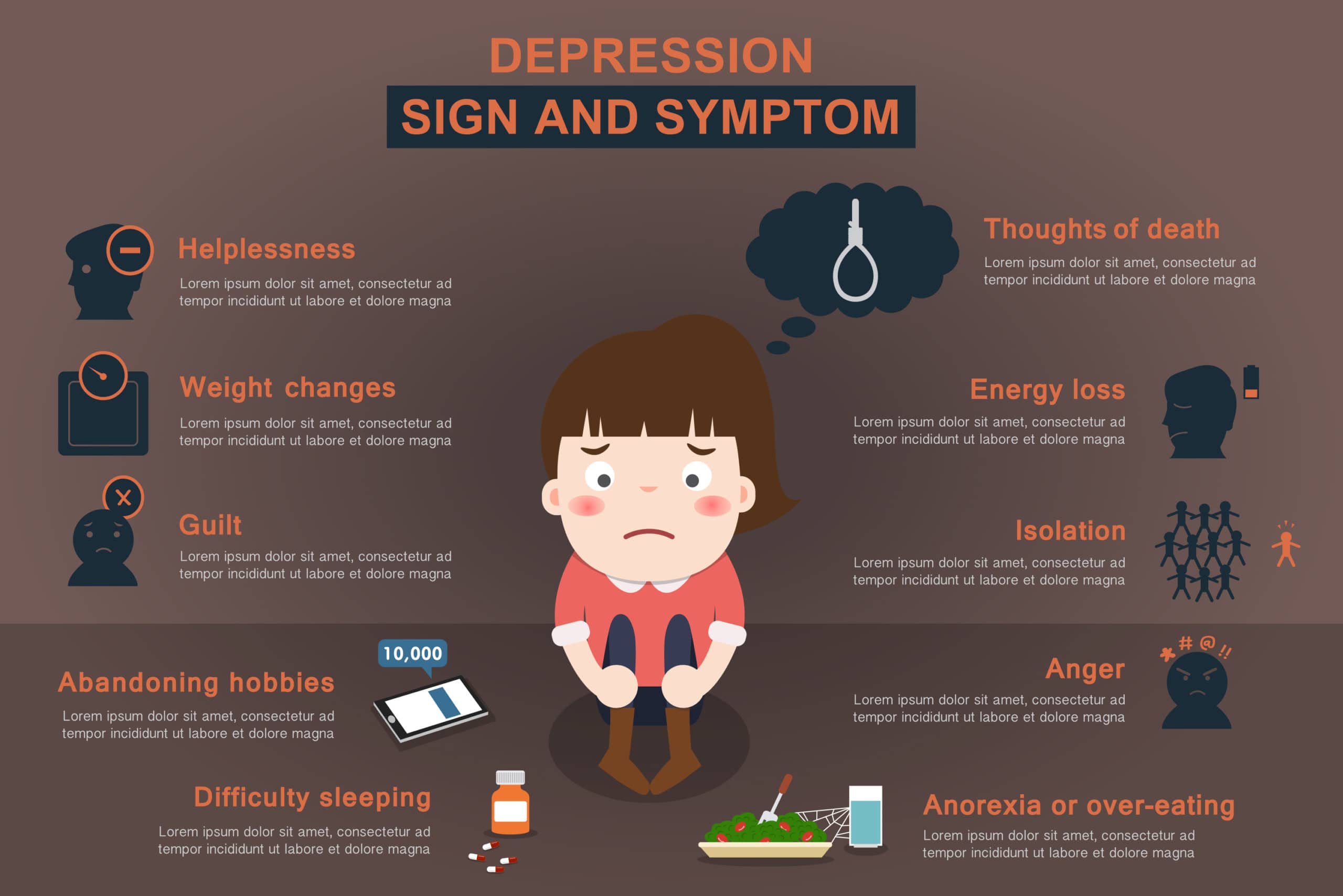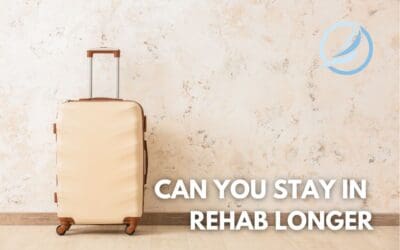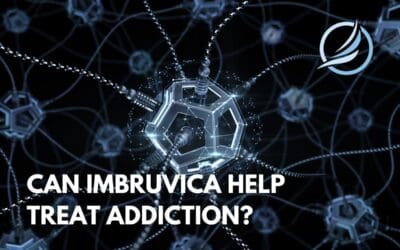Many substance abusers also struggle with a co-occurring mental health disorder. This is known as a dual diagnosis and will require specialized treatment.
Dual diagnosis is a common term that you’ll often hear in the addiction industry. According to the National Alliance on Mental Illness (NAMI), dual diagnosis, also known as a co-occurring disorder, is used to describe a situation when an individual struggles with both a mental illness and an addiction.
Each condition can happen independently from one another, and any condition can develop first. A mental health disorder can lead to a substance use disorder (SUD), and a SUD can exacerbate a mental health disorder. Either condition can worsen the other.
“20.2 million Americans were diagnosed with a substance use disorder in 2014. Of these individuals, 7.4 million also struggled with a mental health disorder.”
It’s vital that rehab centers can diagnose a co-occurring disorder. Alcohol and drug treatment centers must treat both diseases in order for the individual to fully recover. If only the addiction is treated, the patient may still struggle with neurochemical fluctuations and other issues that may lead them to relapse.
This article will explore what a dual diagnosis disorder is and how it can be treated. If you suspect that you or someone that you love is struggling with a dual diagnosis disorder, contact us for more information on the type of addiction treatment programs that can help. The Freedom Center offers a wide range of treatment plans that help those struggling with a co-occurring disorder recover and rebuild a healthy life.
The Link Between Mental Disorders and Substance Use Disorders (SUDs)
Many individuals struggle with co-occurring disorders. Mental illnesses commonly occur simultaneously as substance use disorders. This can be due to several different reasons, like the following:
-
- Neurochemical imbalances and fluctuations. Chemical imbalances in the central nervous system (CNS) are attributed to both mental health disorders and addictions; thus, one can lead to the other. Neurochemical imbalances can happen for no reason at all or can happen due to a variety of reasons. Either way, whenever there is an imbalance, the affected individual will be more susceptible to both mental illnesses and addictions.
- Genetics and family history. According to the National Institute of Mental Health (NIMH), mental illnesses are often caused by genetics. Some genes may increase the risk of developing certain mental illnesses. These genes can also make an individual more predisposed to addiction.
- Self-medication leading to alcohol or drug abuse. Those who are struggling with a mental health disorder will often feel the need to self-medicate. If these individuals are not getting psychiatric care and help, they may decide to turn to alcohol and drugs. This leads to alcohol and drug abuse, which can lead to both physical and chemical dependence.
- Addiction leading to chemical imbalances, which lead to mental illnesses. Researchers will begin to see chemical imbalances among those who abuse alcohol or drugs. These chemical imbalances can then lead to mental illnesses.
- Environmental factors, like stress or trauma. Both of these factors can contribute to the development of addiction or mental illnesses.
The link between mental illnesses and addiction is strong. There is no denying that these two disorders often come hand-in-hand. It is vital for those struggling with both disorders to get the treatment and help that they need.
Common Mental Health Disorders Diagnosed with Addiction
While any mental health disorder that happens at the same time as a SUD will lead to a dual diagnosis, addiction experts are usually on the lookout for certain disorders over others. This is because certain mental illnesses are more prevalent.
Some of the mental health disorders that are most likely to occur at the same time as an addiction include:
- Anxiety disorder
- Attention-deficit hyperactivity disorder
- Bipolar disorder
- Borderline personality disorder
- Eating disorder
- Major depression
- Obsessive-compulsive disorder
- Panic disorder
- Post-traumatic stress disorder
- Schizophrenia
- Social anxiety
In general, those who experience more severe symptoms of the above mental health disorders will be more likely to struggle with an addiction. This is usually because these individuals are more likely to use alcohol or drugs to self-medicate.
It’s often fairly easy for addiction specialists to miss a co-occurring mental health disorder because the symptoms for these mental illnesses may also be symptoms of an addiction. For example, those who struggle with a mental illness will often have mood swings. Unfortunately, addicts are also prone to mood swings.
Symptoms of a Co-Occurring Disorder
As mentioned above, it is actually quite difficult for even the most experienced addiction experts to identify and correctly diagnose a dual diagnosis disorder. This is because the symptoms of an addiction can mask the symptoms of a mental health disorder.
With that said, some of the most common signs and symptoms of a dual diagnosis include:
- A sudden change in general behavior
- A neglect for one’s health and hygiene
- An avoidance of activities and hobbies that were once enjoyable
- Cognitive impairment or disillusioned thoughts
- Difficulties managing responsibilities and daily tasks
- Erratic and impulsive behaviors
- Financial issues
- Poor performance at school, work or home
- Refusal to seek or comply with treatment
- Suicidal thoughts or behaviors
It’s not unusual for a co-occurring mental health disorder to be left undiagnosed. If this happens, the patient will be more likely to relapse, as they’ll have a more difficult time abstaining from drugs and alcohol.
How to Treat a Dual Diagnosis Disorder 
A comprehensive and integrative approach is needed to identify, diagnose and treat a dual diagnosis disorder. In general, most alcohol and drug rehab facilities will evaluate and assess patients for comorbid conditions during the intake assessment.
If the patient is determined to struggle with a co-occurring disorder, they will need a tailored addiction treatment plan that can help them recover from both disorders. An effective plan will usually consist of both medication and behavioral therapies. The details of the treatment program will need to be tweaked based on the patient’s response to the treatment.
It’s important to note that treating a co-occurring disorder can be rather tricky. Our experts may need to try several different tactics, techniques and strategies to figure out what works for you or your loved ones. Let’s explore some of the different evidence-based treatment options that were found to be effective below.
Behavioral Therapies
Behavioral therapy is basically an umbrella term for any therapy that deals with mental health disorders. Addiction is considered to be a complex mental health disorder.
Behavioral therapies teach patients how to retrain their brain and thoughts. These therapies help patients learn how to see the light at the end of the tunnel, and find a solution for their troubles. There are many different types of behavioral therapies that can help someone struggling with a dual diagnosis. Some of these therapies include:
- Assertive Community Treatment (ACT)
- Cognitive Behavioral Therapy (CBT)
- Contingency Management (CM)
- Dialectical Behavioral Therapy (DBT)
Each behavioral therapy will use a different method to address the comorbid situation. The type of therapy that is most effective for each patient will vary from one patient to another. Some patients simply respond better to certain behavioral therapies over others for no reason at all.
Medications
Certain medications may also be effective in treating comorbid conditions. The types of medications prescribed will vary from one patient to another because it will depend on factors like:
- The type of substances that were abused
- The length of the abuse and the frequency of which the substances were used
- Whether the patient is taking any medications at the moment
- The severity and type of withdrawal symptoms experience
- The type of comorbid mental health disorder that is being treated
Different situations call for different medications. For example, those who are addicted to nicotine and who are depressed may benefit from taking bupropion. This medication is approved by the Food and Drug Administration (FDA) for treating both disorders.
Get Healthy with The Freedom Center
Are you struggling with an addiction to alcohol or drugs? Do you suspect that you may also struggle with a mental health disorder at the same time? Or, have you already been diagnosed with a mental illness? Do you feel that your addiction is worsened by a mental health disorder, like schizophrenia or anxiety disorder?
If you answered yes to any of the above questions, you’re going to need dual diagnosis treatment. Here, at The Freedom Center, we have just what you need to get healthy. We offer addiction treatment for comorbid illnesses. Our dual diagnosis treatment plans include both medications and behavioral therapies. They’re incredibly effective. To learn more, give us a call at 855-740-0202.
Do you have any experiences with comorbid illnesses? Have you fought an addiction while struggling with a mental health disorder? Tell us about your experiences in the comments below.






































